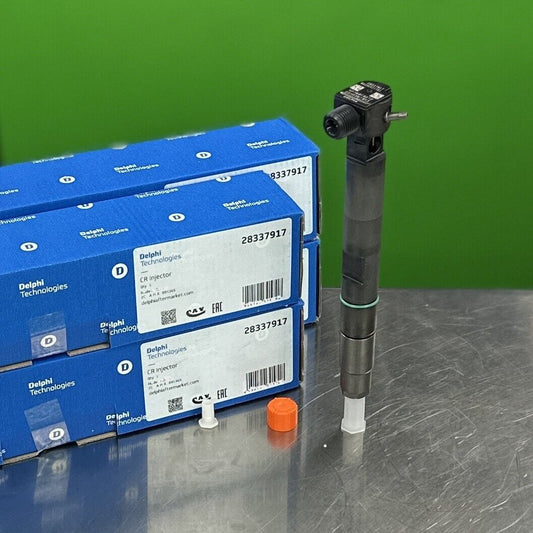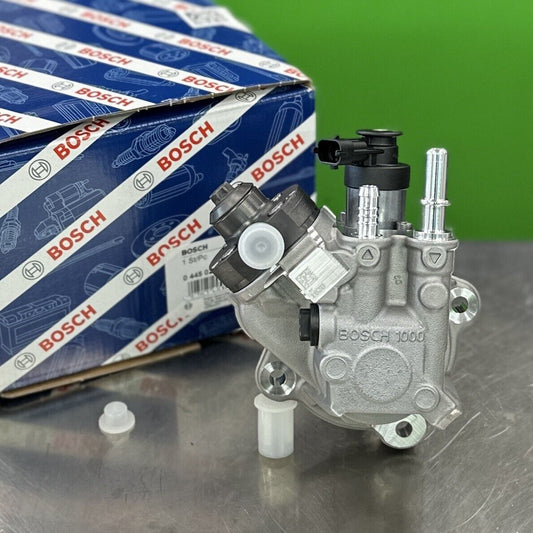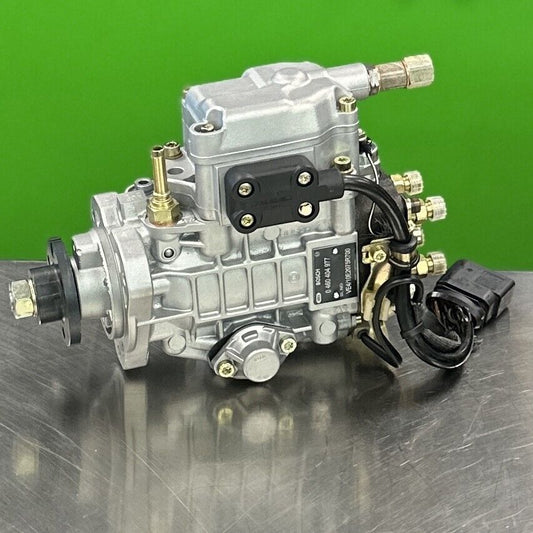How to Protect Diesel Engines from Rust in Humid States like Louisiana
Protecting diesel engines from rust in humid states like Louisiana requires a comprehensive approach to combat the detrimental effects of moisture and high humidity levels. The combination of warm temperatures and abundant moisture in the air creates an ideal environment for rust formation on metal surfaces, including diesel engines. To safeguard your engine and ensure its longevity, it is essential to implement effective strategies and maintenance practices that target rust prevention at its core.
Understanding the Impact of Humidity on Diesel Engines
Humidity can wreak havoc on diesel engines, especially in states like Louisiana where moisture levels are consistently high. The impact of humidity on these engines is profound, as the excess moisture in the air can lead to accelerated rust formation. Rust is the arch-nemesis of engines, causing corrosion, deterioration, and ultimately, engine failure. When humidity levels are high, the risk of rust on diesel engines increases significantly, posing a threat to their efficiency and longevity.
Imagine humidity as an invisible villain that sneaks into the engine's components, causing chaos and destruction. The moisture in the air acts as a catalyst for rust, slowly eating away at the metal surfaces of the engine. Like a silent intruder, humidity creeps in unnoticed, gradually compromising the engine's performance and reliability. Diesel engines, known for their robustness, can succumb to the detrimental effects of humidity if not adequately protected.
To combat the adverse effects of humidity on diesel engines, understanding the science behind rust formation is crucial. When water vapor in the air comes into contact with metal surfaces, it initiates a chemical reaction that leads to oxidation - the birth of rust. This process is accelerated in humid environments, making it imperative to implement preventive measures to shield diesel engines from the pervasive threat of rust.
Choosing the Right Rust Inhibitors for Diesel Engines
When it comes to protecting diesel engines from rust in humid states like Louisiana, choosing the right rust inhibitors is crucial. These inhibitors act as a shield against moisture and corrosion, extending the lifespan of your engine. But with a myriad of options available in the market, how do you select the most effective rust inhibitor for your diesel engine?
First and foremost, consider the environment in which your diesel engine operates. Louisiana's high humidity levels require a robust rust inhibitor that can withstand constant exposure to moisture. Look for inhibitors specifically designed for humid conditions to ensure maximum protection.
Another factor to keep in mind is the type of metal your engine is made of. Different metals react differently to rust inhibitors, so choose a product that is compatible with the materials used in your engine. Conduct thorough research or consult with a professional to determine the most suitable rust inhibitor for your specific engine.
Furthermore, assess the application method of the rust inhibitor. Some products are easier to apply than others, saving you time and effort during maintenance. Opt for inhibitors that offer convenient application processes to streamline the protection of your diesel engine.
Additionally, take into account the longevity of the rust inhibitor. Ideally, you want a product that provides long-lasting protection to minimize the frequency of reapplication. Look for inhibitors with a reputation for durability and effectiveness in humid environments.
Lastly, consider the overall cost-effectiveness of the rust inhibitor. While quality should be a priority, ensure that the product aligns with your budget and offers a good return on investment in terms of engine protection. Compare different options based on their features, reviews, and price points to make an informed decision.
Maintenance Practices to Prevent Rust on Diesel Engines
When it comes to safeguarding diesel engines from rust in humid states like Louisiana, implementing proper maintenance practices is crucial. One key maintenance practice is ensuring prompt and thorough inspections of the engine and surrounding components. Regular checks can help identify any signs of rust or corrosion early on, allowing for timely intervention before the damage worsens.
Another essential maintenance practice is applying rust inhibitors to the entire engine and relevant parts. These inhibitors create a protective barrier against moisture and corrosive elements, effectively preventing rust formation. By following manufacturer recommendations and guidelines, you can ensure that the inhibitors are applied correctly and reap the maximum benefits.
In addition to applying rust inhibitors, it is vital to keep the engine clean and dry. Moisture can accelerate rust formation, so regularly cleaning the engine and ensuring it is properly dried can help mitigate this risk. By removing any dirt, debris, or moisture buildup, you can maintain the engine in optimal condition and reduce the likelihood of rust development.
Furthermore, conducting routine maintenance tasks such as oil changes, filter replacements, and lubrication can also contribute to preventing rust on diesel engines. Properly functioning engine components reduce the likelihood of moisture accumulation and corrosion, extending the engine's lifespan and performance.
Lastly, storing the diesel engine in a dry and well-ventilated environment when not in use can further protect it from rust. By minimizing exposure to high humidity levels and moisture, you can significantly reduce the risk of rust formation and ensure the engine remains in top condition.
Environmental Factors Affecting Rust Formation
When it comes to the formation of rust on diesel engines in humid states like Louisiana, various environmental factors play a crucial role. One of the primary contributors to rust formation is the high levels of moisture in the air. Humidity creates a conducive environment for oxidation, leading to the corrosion of metal surfaces on the engine. Additionally, temperature fluctuations can exacerbate the process, as the combination of heat and moisture accelerates the chemical reactions that cause rust.
Moreover, the presence of pollutants in the air can also contribute to the corrosion of diesel engines. Substances like sulfur dioxide and nitrogen oxides, commonly found in industrial areas, can react with moisture in the air to form acidic compounds. These compounds can then settle on the engine surfaces, speeding up the rusting process. Understanding these environmental factors is essential in devising effective strategies to protect diesel engines from rust in humid states.
Professional Inspection and Treatment Services
When it comes to ensuring the longevity and optimal performance of diesel engines in humid states like Louisiana, professional inspection and treatment services play a crucial role. These services offer a comprehensive approach to safeguarding diesel engines from rust and corrosion, ultimately extending their lifespan and efficiency.
Professional inspection services involve a detailed assessment of the diesel engine, identifying any existing rust or corrosion issues, as well as potential areas of vulnerability. By conducting thorough inspections, experts can pinpoint areas that require immediate attention and recommend suitable treatment solutions to prevent further damage.
Furthermore, treatment services encompass the application of specialized rust inhibitors and protective coatings to mitigate the impact of humidity on diesel engines. These treatments create a barrier against moisture and corrosive elements, effectively reducing the risk of rust formation and preserving the engine's components.
Moreover, professional technicians are equipped with the knowledge and expertise to tailor treatment solutions based on the specific needs of the diesel engine and the prevailing environmental conditions. This personalized approach ensures that the engine receives adequate protection against rust, taking into account factors such as temperature fluctuations and humidity levels.
By entrusting diesel engines to professional inspection and treatment services, vehicle owners in humid states can proactively address rust issues and prevent costly repairs in the long run. These services not only enhance the performance and durability of diesel engines but also provide peace of mind knowing that their engines are well-protected against the detrimental effects of rust.
Frequently Asked Questions
-
How does humidity impact diesel engines?
High humidity levels can accelerate rust formation on diesel engines, leading to corrosion and potential engine damage. It is essential to take preventive measures to protect the engine in humid environments like Louisiana.
-
What are rust inhibitors and how do they help?
Rust inhibitors are chemical compounds that can be applied to diesel engines to prevent rust formation. They create a protective layer on the metal surface, acting as a barrier against moisture and humidity, thus inhibiting corrosion.
-
What maintenance practices can help prevent rust on diesel engines?
Regular maintenance, such as cleaning, lubricating, and inspecting the engine components, can help prevent rust formation. Keeping the engine dry and applying rust inhibitors as recommended can also aid in protecting the engine from corrosion.
-
How do environmental factors contribute to rust formation?
Environmental factors like high temperatures and moisture levels can create a conducive environment for rust to develop on diesel engines. Understanding and controlling these factors are crucial in preventing rust and maintaining engine efficiency.
-
When should I seek professional inspection and treatment services?
If you notice signs of rust or corrosion on your diesel engine, it is advisable to seek professional inspection and treatment services promptly. Professionals can assess the extent of the damage and recommend appropriate solutions to protect your engine.



